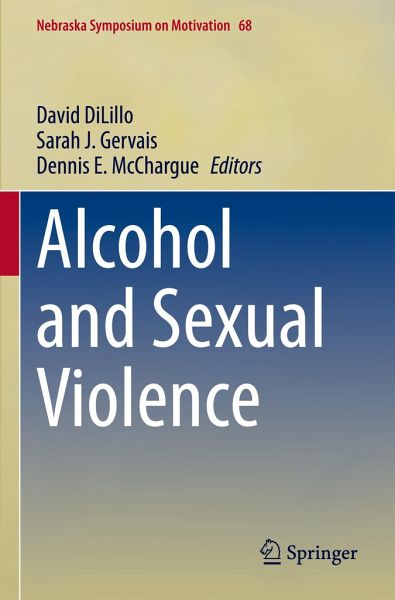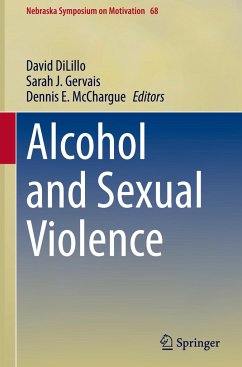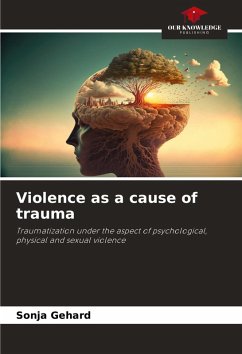
Alcohol and Sexual Violence
Versandkostenfrei!
Versandfertig in 6-10 Tagen
76,99 €
inkl. MwSt.

PAYBACK Punkte
38 °P sammeln!
This book provides a chronology of the 68th Nebraska Symposium on Motivation, which is focused on contemporary research knowledge about sexual violence and alcohol use. This book is more specific to dating and intimate partner sexual violence in young adult populations. The target audience is researchers, prevention agencies and policymakers within academia and military settings.Alcohol use has long been recognized as a major contributor to sexual assault, with an estimated 50% of sexual assaults in the U.S. involving drinking by the victim, perpetrator, or both. Beyond the usual harmful effec...
This book provides a chronology of the 68th Nebraska Symposium on Motivation, which is focused on contemporary research knowledge about sexual violence and alcohol use. This book is more specific to dating and intimate partner sexual violence in young adult populations. The target audience is researchers, prevention agencies and policymakers within academia and military settings.
Alcohol use has long been recognized as a major contributor to sexual assault, with an estimated 50% of sexual assaults in the U.S. involving drinking by the victim, perpetrator, or both. Beyond the usual harmful effects, alcohol-involved assaults are associated with unique sequelae for female victims, including increased self-blame, stigma, and greater alcohol use to cope. Moreover, heavier drinking on the part of the perpetrator is associated with more serious incidents of assault (e.g., involving physical force) that result in more severe outcomes for victims.
The purpose ofthis Symposium on Motivation is to bring together a group of experts in the areas of alcohol and sexual aggression to articulate the causes, consequences, and mechanisms of alcohol-involved sexual assault. Speakers will talk about classic and contemporary research and theories on these issues using cutting-edge approaches (e.g., virtual reality, neuroscience, laboratory-based alcohol administration) from a variety of perspectives (perpetrators, victims, bystanders).
Alcohol use has long been recognized as a major contributor to sexual assault, with an estimated 50% of sexual assaults in the U.S. involving drinking by the victim, perpetrator, or both. Beyond the usual harmful effects, alcohol-involved assaults are associated with unique sequelae for female victims, including increased self-blame, stigma, and greater alcohol use to cope. Moreover, heavier drinking on the part of the perpetrator is associated with more serious incidents of assault (e.g., involving physical force) that result in more severe outcomes for victims.
The purpose ofthis Symposium on Motivation is to bring together a group of experts in the areas of alcohol and sexual aggression to articulate the causes, consequences, and mechanisms of alcohol-involved sexual assault. Speakers will talk about classic and contemporary research and theories on these issues using cutting-edge approaches (e.g., virtual reality, neuroscience, laboratory-based alcohol administration) from a variety of perspectives (perpetrators, victims, bystanders).












